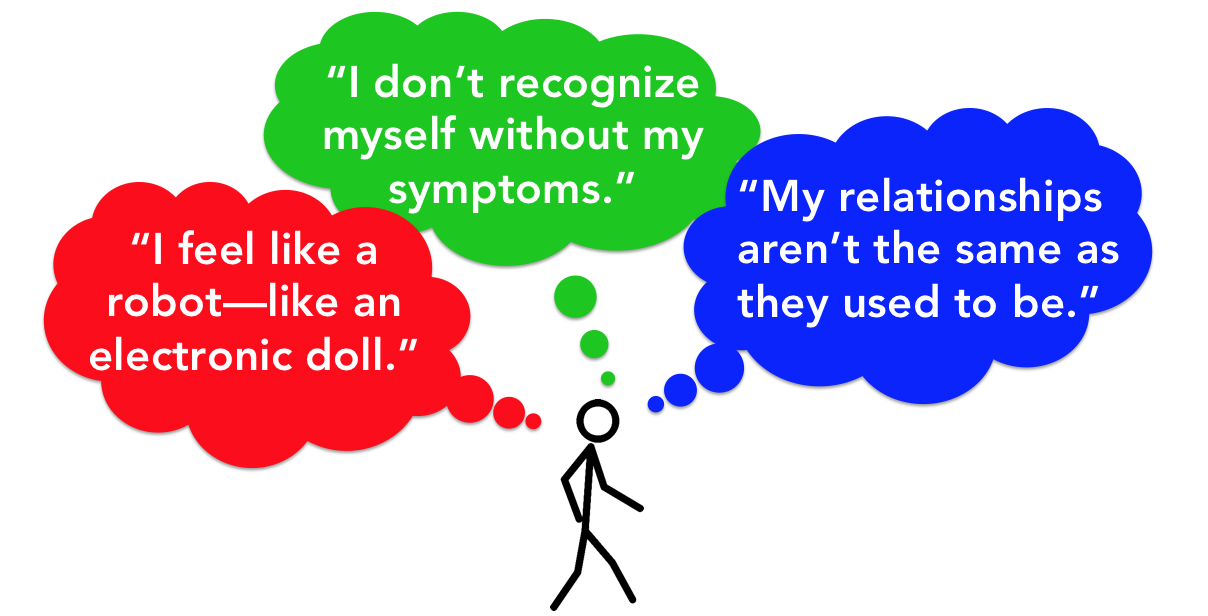The Problem
 Implantable neurostimulators—in particular, Deep Brain Stimulators (DBS)—are becoming a more common means of treating a variety of motor and mental disorders. DBS systems, however, may come with a number of potential ethically-salient outcomes—including (but not limited to) changes to the user’s personal identity, changes to the user’s sense of autonomy, the vulnerability of these systems to tampering or hacking, and the possibility for enhancement applications. Some users even report feelings of self-estrangement, alienation, or. A new generation of DBS systems are slated to give users direct neural control over when and how much the system stimulates—Brain Computer Interface-triggered DBS (BCI-DBS). There are, however, potential problems with BCI-control. It isn’t clear if (and how) BCI control will exacerbate or alleviate the aforementioned ethical outcomes. It also isn’t clear what the user’s concerns are about having control of their neurostimulator.
Implantable neurostimulators—in particular, Deep Brain Stimulators (DBS)—are becoming a more common means of treating a variety of motor and mental disorders. DBS systems, however, may come with a number of potential ethically-salient outcomes—including (but not limited to) changes to the user’s personal identity, changes to the user’s sense of autonomy, the vulnerability of these systems to tampering or hacking, and the possibility for enhancement applications. Some users even report feelings of self-estrangement, alienation, or. A new generation of DBS systems are slated to give users direct neural control over when and how much the system stimulates—Brain Computer Interface-triggered DBS (BCI-DBS). There are, however, potential problems with BCI-control. It isn’t clear if (and how) BCI control will exacerbate or alleviate the aforementioned ethical outcomes. It also isn’t clear what the user’s concerns are about having control of their neurostimulator.
Our Solution
We are conducting a series of semi-structured interviews with Essential Tremor (ET) patients who are testing out an experimental BCI-triggered DBS system. These interviews: how they’ve been effected by ET, how DBS treatment has changed their life with ET, how BCI control would change their experience, and so on. We’ve also chosen to administer these interviews in-situ: the patient is able to give us feedback about the system while they use it.
Impact
Our work should have at least two positive outcomes. First, patient feedback on BCI-triggered DBS should give us a better idea of what patients’ want out of their treatment, what they would change about how the system works, and how these systems fit into their (sometimes complicated) lives. With their feedback in tow, BRL engineers should be able to devise control algorithms, security precautions, and failsafes that better accomodate the end-user. Second, these interviews should give us insights about which theories of autonomy (decisional, relational, or otherwise) best capture how DBS changes the lives of patients who use it.
Affiliated Students and Faculty: Tim Brown, Jeffrey Herron, Maggie Thompson, Katherine Pratt, Howard Chizeck
Publications:
Timothy Brown. “A Relational Take on Advisory Brain Implant Systems.” AJOB Neuroscience 6, no. 4 (November 30, 2015): 46–47.
Eran Klein, Timothy Brown, Matthew Sample, Anjali R Truitt, and Sara Goering. “Engineering the Brain: Ethical Issues and the Introduction of Neural Devices.” Hastings Center Report 45, no. 6 (November 1, 2015): 26–35.
Funding Sources:

